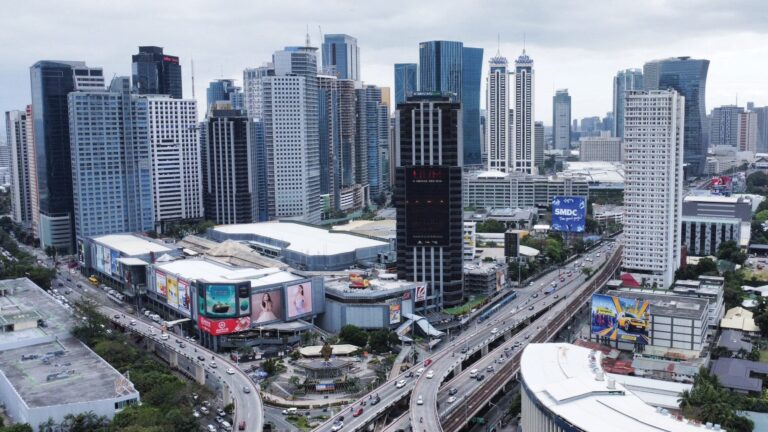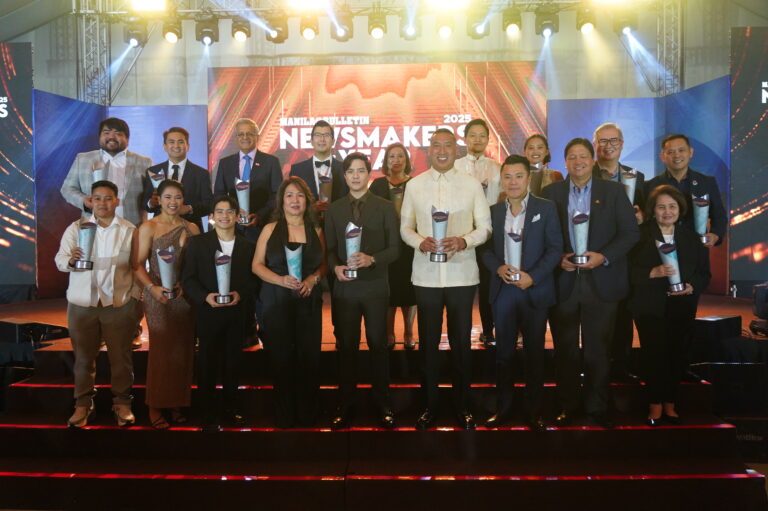On this day in 1900, Manila Bulletin was born. Have we come far enough? Is life better now than we found it a few years, a few decades, a century, or 125 years ago?No time is more Dickensian than now, not even Charles Dickens’ time. In celebrating a great milestone, 125 years since Manila Bulletin began …
On this day in 1900, Manila Bulletin was born. Have we come far enough? Is life better now than we found it a few years, a few decades, a century, or 125 years ago?
No time is more Dickensian than now, not even Charles Dickens’ time.
In celebrating a great milestone, 125 years since Manila Bulletin began on this day in 1900, we venture to give our turn in the dance of history an honest assessment. Have we come far enough? Is life better now than we found it a few years, a few decades, a century, or 125 years ago?
But we alone aren’t answering these questions. We are, after all, celebrating a history so inextricably linked to our nation’s, perhaps even the world’s. As a chronicler of the turn of events spanning over a century, the Manila Bulletin had been there when the telephones became a thing and electricity fired up the cities. It was there when Italian engineer Guglielmo Marconi was working on an experiment that would give birth to the radio and when the Wright brothers Orville and Wilbur were trying to send a heavier-than-air machine on a flight. It was there when the first Philippine Assembly, the lower house of the Philippine Legislature, was inaugurated on Oct. 16, 1907, convening for the first time as an elected legislative body.
In this special issue, both celebratory and exploratory, we enjoin the movers and shakers of our time, such as SSI Group’s Anton Huang, Bench founder Ben Chan, Megaworld’s Kevin Tan, Ayala Corporation’s Marianna Zobel de Ayala, San Miguel Corporation’s Ramon S. Ang, Robinson’s Robina Gokongwei Pe, philanthropist and culture advocate Sofia Zobel Elizalde, Philippine Airlines’ Stanley Ng, SM’s Steven Tan, and more, as well as our top chefs, our top fashion designers, and all who make this nation stronger, more out there, ever more beautiful.
But now compared to then, with apologies to Charles Dickens, is more like the best and the worst of times, the age of both wisdom and foolishness, and the season of light as much as it is the season of darkness.
Already, we are in the future, a future we have been harping about since science fiction was invented arguably as far back as 1459, when The Chymical Wedding of Christian Rosenkreutz was written anonymously, only to be claimed later, in his autobiography Mennipus, published in 1617, by German theologian Johannes Valentinus Andreae.
Yet, we are also in the past, digging out many things that belonged there, the songs of yesteryears, for example, or ancient texts, such as the Kushan Empire script, partially deciphered in 2023 by University of Cologne researchers as inscriptions originating from today’s Tajikistan, Afghanistan, and Uzbekistan.
In the Philippines, we are navigating both the past and the future in a present that by all measure is more expressive, inclusive, connected, and aware. In the age of robotics, generative AI, and biotechnology, we are re-wearing 19th century ternos, recreating traditional dishes from heirloom recipes, and, prompted by the 500th anniversary of Ferdinand Magellan’s arrival on Homonhon Island, reading up on clues—such as through the chronicles of Antonio Pigafetta or through Chinese records dating back to the 10th century and its mentions of Ma-I, the lost maritime and trade center believed to have been located in Mindoro or Lumban, Laguna—on who we were before the arrival of colonizers.
The Manila Bulletin is a repository of all that has happened since it was established as a shipping journal on Feb. 2, 1900 by a former teacher from Illinois, Carson Taylor. In a matter of a years, it grew exponentially, described in a legal document dated Dec. 8, 1914, as a certain daily bilingual newspaper, edited in the English and Spanish languages… of large circulation throughout the Philippine Islands, as well as in the United States and other countries…”
So is life better now? I would say yes.
If you were gay, or of a gender outside of the binary system categorizing people into two mutually exclusive groups—male and female—which for millennia governed everything related to our sexuality and identity, wouldn’t you say yes too? Or if you were a woman who have dreams of running a corporation, a country, or an empire, although while the past did have room for women of power like Queen Elisabeth I, Joan d’Arc, and Cleopatra, they held power in a world otherwise dominated by male hierarchy, still quite true today, but not as much.
But there are more reasons we can look at our time as much better than that of previous generations. Supposing you had tuberculosis, would you prefer to have had to struggle with it now or in 1936 when the disease claimed 32,235 lives in the Philippines? HIV is a cause of concern now, raising alarm bells as recently as March last year when an average of 55 cases were diagnosed daily in the country, but HIV, even now, even here, is no longer the monster it was from 1981 through 1990, when AIDS resulting from HIV infection caused 100,777 deaths.
What comes out in the studies is always a mix of optimism and nostalgia. In a Social Weather Stations (SWS) survey conducted in September 2021, it was found that 57 percent of Filipinos felt their quality of life had worsened, 13 percent felt it had improved, and 29 percent felt it had remained unchanged. Evidence, however, points to significant advancements in economic conditions, educational attainment, and social progress over time across the world. Ask the Thais, the Vietnamese, or even the Laotians. Or ask the entrepreneurial kids under 20 making a killing on Instagram.
Progress comes with higher societal expectations, causing discontent and a longing for the past. I sometimes think this longing is not so much about the past as it is, perhaps ultimately, about our lost youth, our younger selves.
I ache for the past, though, for its many revolutions, the switch, as The Correspondent’s Dutch correspondent Rob Wijnberg put it in a 2019 essay, “from muscle power to animal power, to steam and electricity, to oil and gas,” for instance, which, a result of human ingenuity and inventiveness, made everything that makes us think life is better now possible—ease, comfort, convenience, efficiency, productivity.
Paradoxically, what we are enjoying right now is also driving us to the brink of planetary collapse. And the change we urgently need to make today, with global warming and climate change threatening our habitat with extinction, may no longer be about making life better, but about making it possible in the future.
Join the Club
Like this story? You’ll love our monthly newsletter.







